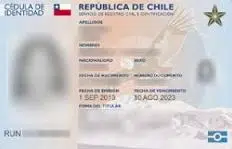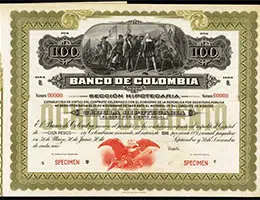 The Latin word schedŭla is the diminutive of scheda , which can be translated as “sheet of paper.” The notion came to our language as an ID : a paper that has certain written information.
The Latin word schedŭla is the diminutive of scheda , which can be translated as “sheet of paper.” The notion came to our language as an ID : a paper that has certain written information.
The most common use of the concept refers to an official document that is used to notify or prove something. One of the best-known cards is the identity card , which can acquire different names depending on the country ( citizenship card , identity document and others).
The identity card is issued by the State . Each citizen has his or her own identity card, which includes personal data that allows identification: full name, date and place of birth, etc. The identity card is used by people to carry out various procedures; State authorities, for their part, can exercise control tasks through these documents.
In Argentina , the National Directorate of National Registries of Automotive Ownership and Pledge Credits ( DNRPA ) is an official body that issues the Vehicle Identification Card , also called Green Card . This credential is given to the owner of a car, van, truck, motorcycle or special machinery with their personal data and vehicle information .
The DNRPA also issues the Identification Card for Authorized Drivers , known as the Blue Card . In this case, the document constitutes an authorization that the owner of a vehicle grants to another person to drive his or her car or motorcycle.
Mortgage certificates , on the other hand, are securities issued by a financial institution, using the mortgage loans it granted as collateral. These bonds pay a fixed interest.
The mortgage bond offers the client a return in exchange for the amount invested in this type of securities . The financial entity that issues it relies on its mortgage loan portfolio to provide the guarantee that characterizes it; In other words, all the loans that the institution has serve to guarantee the certificates it issues.
This is directly linked to one of the limitations of this title: only official credit institutions, mortgage credit companies and savings banks can issue it. Regarding its term, it is possible to say that it is between one and three years, depending on different factors.
According to the type of guarantee , a classification arises in which we find two types of mortgage certificate:
* mortgage certificate with special guarantee : its issuance takes place with the guarantee of one or more mortgage loans in particular, which must be well defined;
* Mortgage certificate with global guarantee : in this case, it is the set of all the entity's loans that provides clients with the guarantee at the time of issuance of the title. It is worth mentioning that there is an exception, and it occurs with loans that act as support for mortgage bonds of the previous type.
 It is correct to say that the mortgage certificate is a very suitable instrument for financing activities linked to construction, for example; However, in order for it to be implemented effectively, certain requirements must be met, such as the following:
It is correct to say that the mortgage certificate is a very suitable instrument for financing activities linked to construction, for example; However, in order for it to be implemented effectively, certain requirements must be met, such as the following:
* an adequate macroeconomic environment, without sudden changes or exchange or monetary instability, unemployment peaks, etc.;
* a rigid and efficient system of registration, information and cadastre, in addition to a transparent appraisal process and agility in the execution of mortgages in the event of failures on the part of the debtor;
* adequate mechanisms to provide liquidity, that is, a sale at a low cost in the shortest possible time;
* The debtor must have confidence in the scheme, as well as the pension entities and issuers must be familiar with stock market operations.
